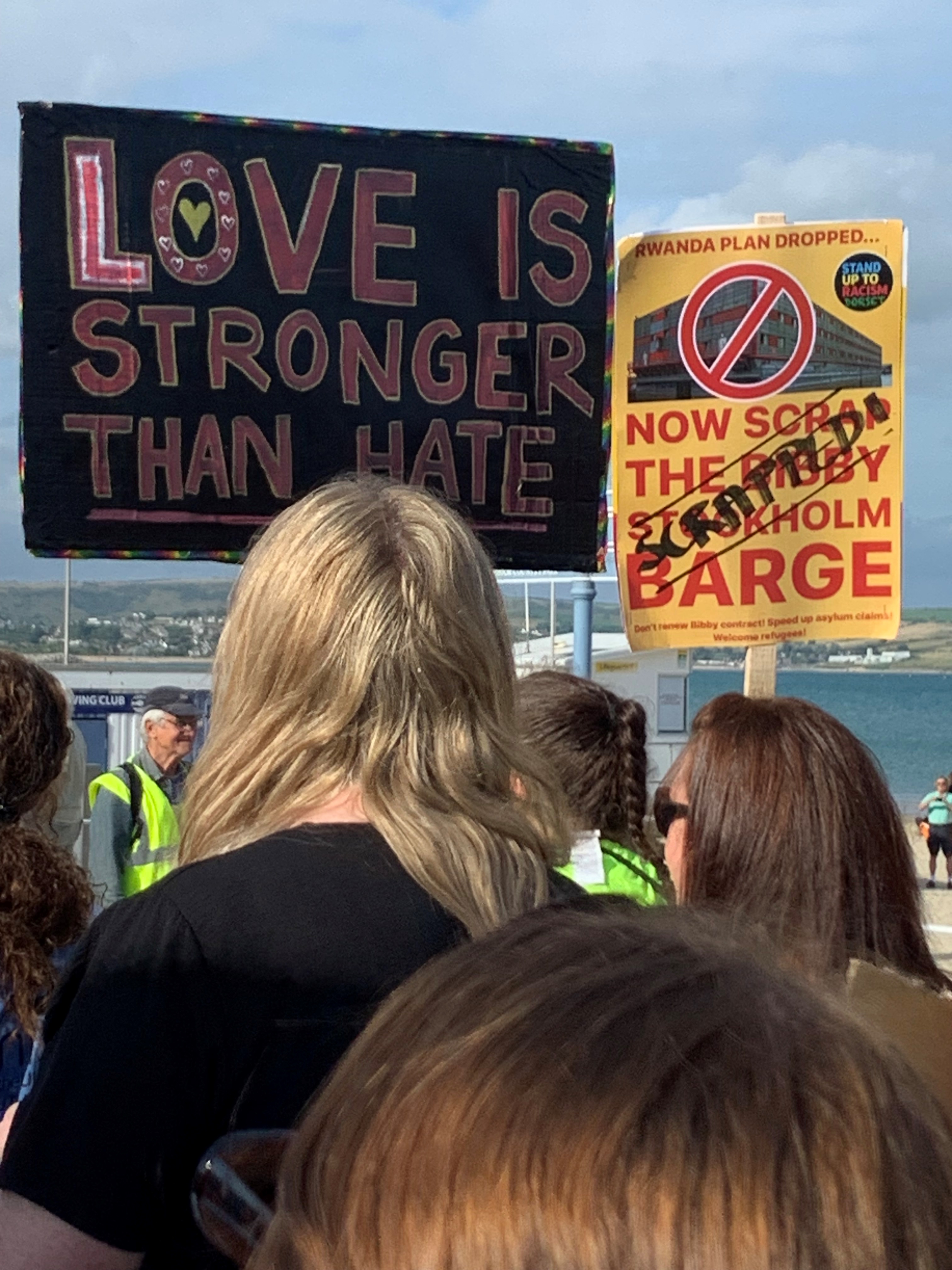 A reflection from Revd Canon Jonathan Herbert, Chaplain to the Gypsy and Traveller Communities.
A reflection from Revd Canon Jonathan Herbert, Chaplain to the Gypsy and Traveller Communities.
In August I attended a counter demonstration to a rally that had been called by the English Defence League and other far-right groups in Weymouth. It was a sunny afternoon and we gathered on the Esplanade below the statue of King George. We were a mix of Muslims, Jews, Christians, Trade Unionists, socialists, liberals, pacifists, members of Extinction Rebellion, volunteers supporting people on the Bibby Stockholm and many others of no particular affiliation who’d been shocked by the violence on our streets directed at minority groups.
We were all united by a desire to challenge the sickening violence we’d seen on our screens and the language of scapegoating and ‘othering’.
I felt a little unnerved by the tub thumping and angry speeches of many of who spoke, but was delighted to hear a Christian layperson call for peace and read a prayer of St Francis. As the far-right march drew closer the police formed a line of vehicles and officers to separate the two groups.
My group started chanting across the police lines and kept on shouting for nearly an hour. I felt increasingly uncomfortable with ‘us’ on one side and ‘them’ on the other and all the noise. I felt my group had fallen into what I would call the narrative of separation which leads to exclusion and is at the heart of racism.
I and a friend from the climate change movement spoke about how uncomfortable we felt and that this didn’t feel like a truly non-violent demonstration. I thought about Dr Martin Luther King and how non-violence was deeply embedded into the civil-rights movement in the USA. Martin Luther King’s actions were always outwardly peaceful and participants having prepared for them by prayer had an inner sense of calm and determination. Dr King knew that opposing the racist segregationists and state violence with violence would only lead to a continual spiral of conflict, instead his movement embraced non-violence. He said in his last speech “It is no longer a choice between violence and non-violence in this world; it’s non-violence or non-existence”
Dr King’s embrace of non-violence came from his love of the non-violent Jesus, in particular his teaching on The Sermon on the Mount Matthew 5-7. He knew that racism was deeply embedded in America and only a deep conversion to walking in the way of the peace making Jesus would dissolve the polarisation in society.
Two days before I attended the rally in Weymouth I’d been at a event in Sherborne Abbey where 150 people had gathered to remember the Roma Holocaust in a moving ceremony. It marked 80 years since the night in 1944 all the remaining Roma and Sinti were killed in Auschwitz.
Over 500,000 Roma were killed during the Holocaust. Genocide only happens because the scapegoating and racism go unchallenged. The way of Jesus calls us to recognise each person as made in the image of God and loved by God, and Jesus calls us to witness to this by loving our neighbour. Jesus particularly chose to be neighbour to those most excluded by the separation narratives of his day.
I wonder if one of the best ways of making Jesus known might be to get alongside our neighbours, regardless of faith or political standpoint.


